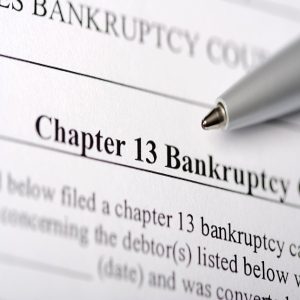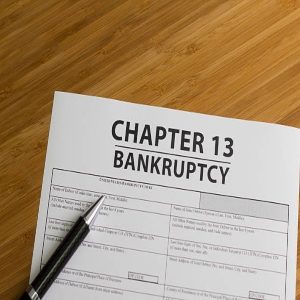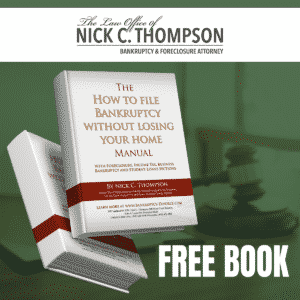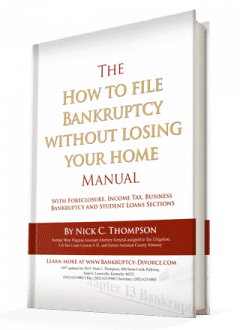The Chapter 13 confirmation hearing and the 341 meeting are simple hearings where the judge and trustee review your disposable income and budget to ensure the repayment plan is feasible. The 341 meetings and the chapter 13 confirmation hearings are held simultaneously in Louisville, Kentucky. However, they are on different days in Indiana and the Lexington district.
Louisville Kentucky Chapter 13 • 341 Confirmation Hearing
If you want to have a much more complete list of the questions they may ask at a 341 meeting of creditors, follow the next link.
Some of the questions they ask at a 341 meeting of creditors are as follows:
- Do you make enough income to afford the payments included in the Chapter 13 plan, as required by bankruptcy law?
- Did you start making payments on the mortgage and the debt repayment plan the month you filed?
- Did you include paying the necessary taxes in your budget after the court confirms your proposed plan?
The Chapter 13 Trustee administers an oath, and you identify yourself by producing a government photo ID such as a driver’s license or your social security card. The Chapter 13 trustee is not the judge, but your answers are still under oath and included in all chapter 13 bankruptcy records. The 341 meeting of creditors you attend is far more like a deposition than a hearing.
What Should you Expect at Chapter 13, 341, or Confirmation Hearing?
In a standard Chapter 7 hearing, the trustee is very interested in two issues—the value of your assets and whether you transferred assets to other people just before filing. The trustee can earn up to 25% as a commission from the funds he gives to creditors.
The Chapter 13 trustee earns about 5% from the funds you pay to unsecured creditors, including your chapter 13 bankruptcy judge fees. The Chapter 13 trustee is more concerned about your current monthly income and expenses and whether you properly repaid secured and priority debts under bankruptcy law. The primary question the bankruptcy trustee asks at the 341 and chapter 13 confirmation hearing is to determine if you are paying all of your disposable income into the repayment plan.
He searches for bonuses or side jobs to increase your income and the money paid into the repayment plan. He also explores whether the expenses are real, reasonable, and necessary. Do you need a fish and ski boat? If not, you can probably let the boat return and repay creditors more. Bankruptcy attorneys evaluate everything related to the confirmation hearing.
The Procedure for Chapter 13 Confirmation Hearing
Plans are almost always approved without the need for a chapter 13 confirmation hearing in Western Kentucky. The Western District of Kentucky judges will not even review plans that repay above 50 to 70%. Each judge is different. One judge would set his no-look percentage at 50%. Another judge will require a higher percentage.
Just because your repayment plan offers a lower percentage than the no-look percentage does not mean it will not be accepted. The bankruptcy judge decides if the plan is reasonable. Just because he reviews, the plan does not mean he won’t allow a plan to be 10% or less.
Your plan is not feasible if your circumstances show you cannot pay mortgages, car payments, or necessary expenses such as medical care, taxes, utilities, and insurance. Judges will generally approve a lower percentage, allowing you to live reasonably and have an affordable repayment plan.
The confirmation hearing is far more likely to be about whether your chapter 13 repayment plan is feasible. If the plan’s purpose is to catch up on a mortgage or pay off an IRS or unsecured debt, then the plan payments must be enough to do precisely that, and you may need to show the plan meets the requirements for a chapter 13 repayment plan or that it is feasible. Payments can increase over time in a step plan.
What is the Difference Between a 341 Meeting and a Chapter 13 Confirmation Hearing?
1. The 341 Meeting is for an Accurate Petition.
The 341 meeting in Chapter 7 or 13 considers the accuracy of the petition. Then, the confirmation hearing considers the chapter 13 repayment plan and whether it’s feasible and complies with the bankruptcy court requirements. In Louisville, these hearings combine into one hearing where the review takes place for everything at once. Lexington and Indiana have 341 meetings and confirmation hearings on different days.
2. The Confirmation Hearing and a Workable Plan.
In a Chapter 7 case, the 341 also considers if assets must be sold to repay during the meeting of creditors. But it is infrequent that a debtor has more assets than is allowable for an underlying debt. Chapter 13 retains assets unless they want to surrender or sell them for debt relief or debtor’s property. Still, the issue of liquidation might come up. Also, Chapter 13 must repay as much as Chapter 7. If it does not, then plan payments may have to increase. Yes, you can keep your jet plane. But, the plan might have to repay as much as the jet plane would have repaid creditors.
3. What is Necessary for the Plan for the Confirmation Hearing?
The Chapter 13 trustee asks primary questions about your income, expenses, and any transfers of a property before filing. Your plan must pay priority debts such as income tax and unsecured claims and secured debts in full or up to the value of the security. They are included in the bankruptcy proceedings. Your Chapter 13 plan may lower the interest rates on secured claims such as car loans. It may also lower or eliminate penalties and interest on income taxes. Interest during chapter 13 bankruptcy usually is never paid on unsecured debts. How you plan to repay certain secured and priority creditors is also reviewed.
4. Conduit States the Need to Pay the Month the Bankruptcy Case is Filed
The more money that pays through the plan, the more the trustee makes in fees. States like Indiana require mortgage payments paid through the method. These are conduit states where the trustee is primarily responsible for paying the mortgage. However, Kentucky is not a conduit state and requires you to pay the mortgage directly.
It is often best to pay the auto payments through the plan. Car payments through the plan allow you to lower the interest rate or cram down the auto. Some people qualify for stripping the car and only paying for the secured part. However, you might be in default and behind if you pay the car through the plan and then dismiss a case.
5. At the 341 Meeting
Before the hearing, your bankruptcy judge will send documentation to the trustee to prove the facts in your petition. There is a video in our video section that shows what a 341 meeting is like. You will notice that the hearing is very informal, but you must dress appropriately, be respectful, and be ready to answer questions.
6. How the Chapter 13 Trustee is Paid?
The Chapter 13 trustee earns a minimal fee to verify the facts in your petition and a percentage of the payments you make to him for your creditors. He will often insist your car payments be paid through him and that the costs be deducted to ensure expenses are paid on time.
7. Motions to Dismiss and Terminate the Stay
The case dismisses if the Chapter 13 payments are not paid on time. You pay mortgage payments directly to the mortgage company starting the month you file. If the mortgage payments are not made on time, the lender files a motion to stay, and the house goes back into foreclosure. Your Chapter 13 payments to the trustee start the month you file.
Creditors can file an objection to your plan, but most creditors resolve any complaints with the bankruptcy attorney or trustee before the Chapter 13 and 341 Confirmation Hearing. Here is an exhaustive checklist of what you need to know if you file Chapter 13 in Western Kentucky.
I hope this helps you understand the difference between a 341 meeting and a confirmation hearing. Please call our office if you have any questions at 502-625-0905 today.
Contact Us to Learn Everything Related to Chapter 13, 341, and the Confirmation Hearing!
It takes time to earn experience in handling cases and bankruptcy law. You don’t do that in 5, 8, or 10 years. You have to learn from thousands of cases, and the judges and trustees must understand they can trust and respect your petitions.
It is not something quickly learned. You must know thousands of pages of the bankruptcy code and other statutes. These sections work like a seamless spider web so deserving debtors can get the debt relief they need. We make sure to take care of every sensitive or confidential information.
It becomes far more of an art than a science, and you must see several steps ahead in the chess game to ensure your client obtains the benefits they need to get that fresh start. Many law offices plan a case to make the most income from the client. But you can make a reasonable income by doing an excellent job for your clients. If you want to plan your Chapter 13 properly, come in for a free consultation at my law firm. We maintain a confidential relationship in our attorney-client relationships. We also accept cases from the Louisville lawyer referral service.
Resources for Bankruptcy
Louisville, Kentucky Bankruptcy Forms
Filing Chapter 7 & Chapter 13 Bankruptcy • Video
Louisville Kentucky Chapter 7 341 Hearing
Chapter 7 or 13 Bankruptcy Trustees and the 341 Hearing
Trustee Questions at the Bankruptcy 341 Meeting
If you are considering filing bankruptcy, don’t delay because timing is crucial. I am here to help you. So, contact my office immediately to start the conversation—Nick C. Thompson, Bankruptcy Lawyer: 502-625-0905.




